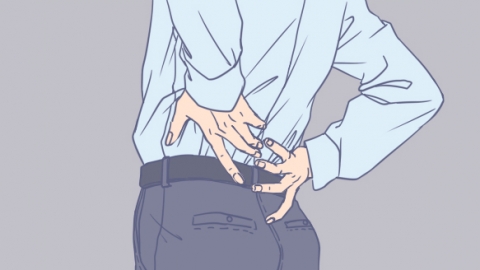What to do about deficiency of both Yin and Yang
Yin-Yang deficiency is a pathological condition in traditional Chinese medicine (TCM), which may be caused by irregular lifestyle habits, excessive sexual activity, or damage from severe diseases. It can generally be treated through regulation with Chinese herbal medicine, acupuncture therapy, moxibustion therapy, and improvements in lifestyle habits. If symptoms persist, timely medical consultation is recommended. Detailed analysis is as follows:

1. Irregular lifestyle habits: Long-term irregular lifestyle habits may lead to bodily dysfunction, weaken the body's ability to consume and absorb nutrients, and disrupt the normal balance of Yin and Yang, resulting in Yin-Yang deficiency. It is important to maintain regular作息 (作息 should be translated as "作息" in English, but here it means "rest and activity patterns"), and avoid excessive fatigue.
2. Excessive sexual activity: Frequent sexual intercourse or overindulgence can easily transform kidney essence into reproductive essence, which is excessively expelled from the body, causing depletion of kidney essence and damage to kidney Qi, ultimately leading to Yin-Yang deficiency. Sexual activity should be moderated, and physical and mental well-being should be nurtured to restore the body's Yin-Yang balance.
3. Aging and physical decline: With advancing age, bodily functions gradually decline and kidney Qi weakens, resulting in Yin-Yang deficiency. Chinese herbal formulas with nourishing Yin and invigorating Yang effects, such as Liu Wei Di Huang Wan, Zuo Gui Wan, Da Bu Yin Wan, can be used. These should be combined with appropriate physical exercise and dietary regulation to enhance physical constitution and delay aging.
4. Congenital insufficiency: If one or both parents have poor physical constitutions, or if the mother smokes frequently, suffers from malnutrition, or has severe diseases during pregnancy, the child may be born with poor congenital constitution. If no effective improvement occurs after birth, Yin-Yang deficiency may develop. This may be accompanied by delayed growth and development, intellectual disability, and other symptoms. Nutritional supplementation and rehabilitation training should be emphasized in daily life to enhance physical fitness and immunity.
5. Severe disease damage: After surgery, severe hemorrhage, severe diarrhea, long-term dietary irregularities, or chronic sleep deprivation, the Yang Qi or Yin fluids of the spleen and stomach may be severely damaged. Yang deficiency gradually injures Yin fluids, while Yin deficiency impairs Yang Qi, and both can eventually lead to Yin-Yang deficiency. Symptoms such as physical weakness, loss of appetite, insomnia, and frequent dreams may also appear. Treatment primarily involves actively addressing the underlying disease, combined with acupuncture therapy, moxibustion therapy, and other methods to regulate meridians and balance Yin and Yang.
In daily life, individuals with Yin-Yang deficiency should maintain a light yet nutritious diet and may appropriately consume foods such as wolfberries (Lycium barbarum), black sesame seeds, etc. Exercise options include gentle practices like Tai Chi and Baduanjin to promote circulation of Qi and blood. Additionally, excessive fatigue and emotional fluctuations should be avoided to maintain internal Yin-Yang balance.









